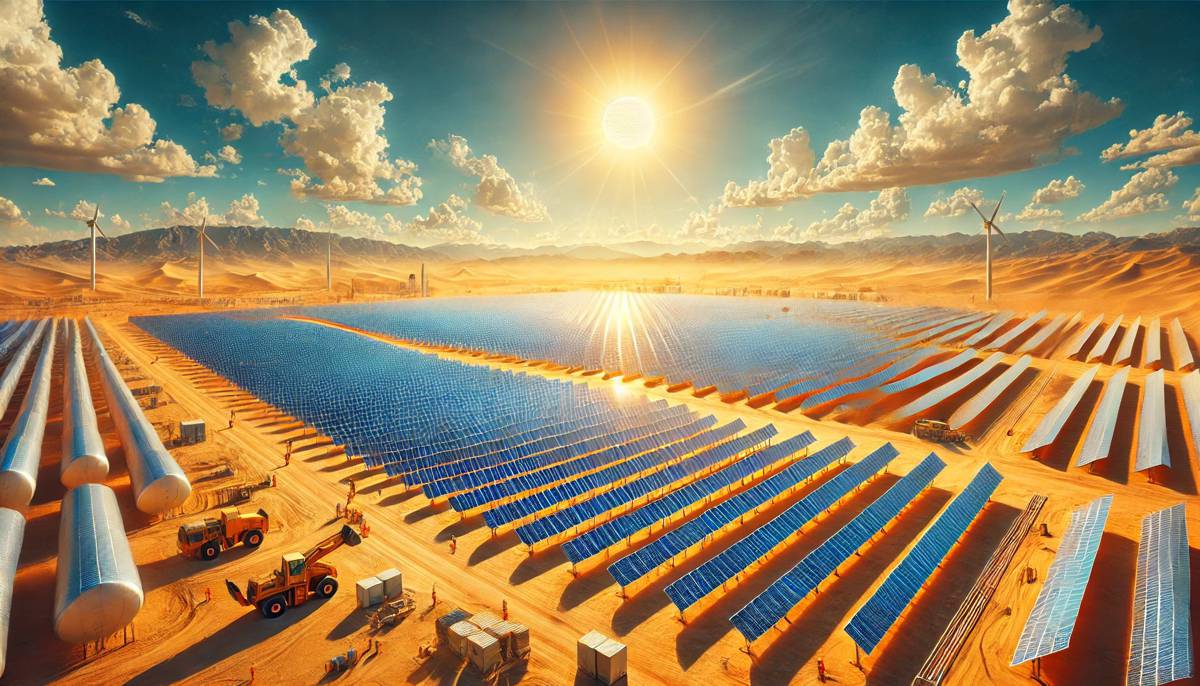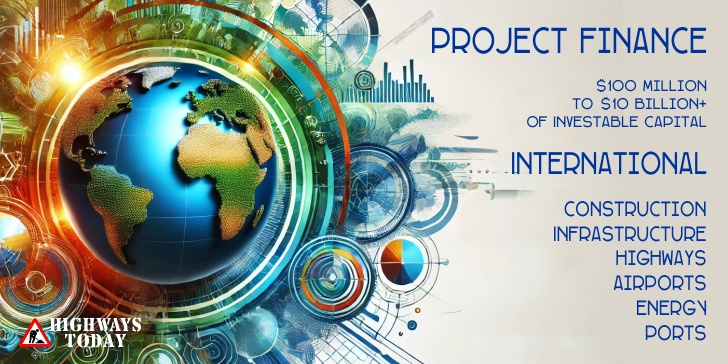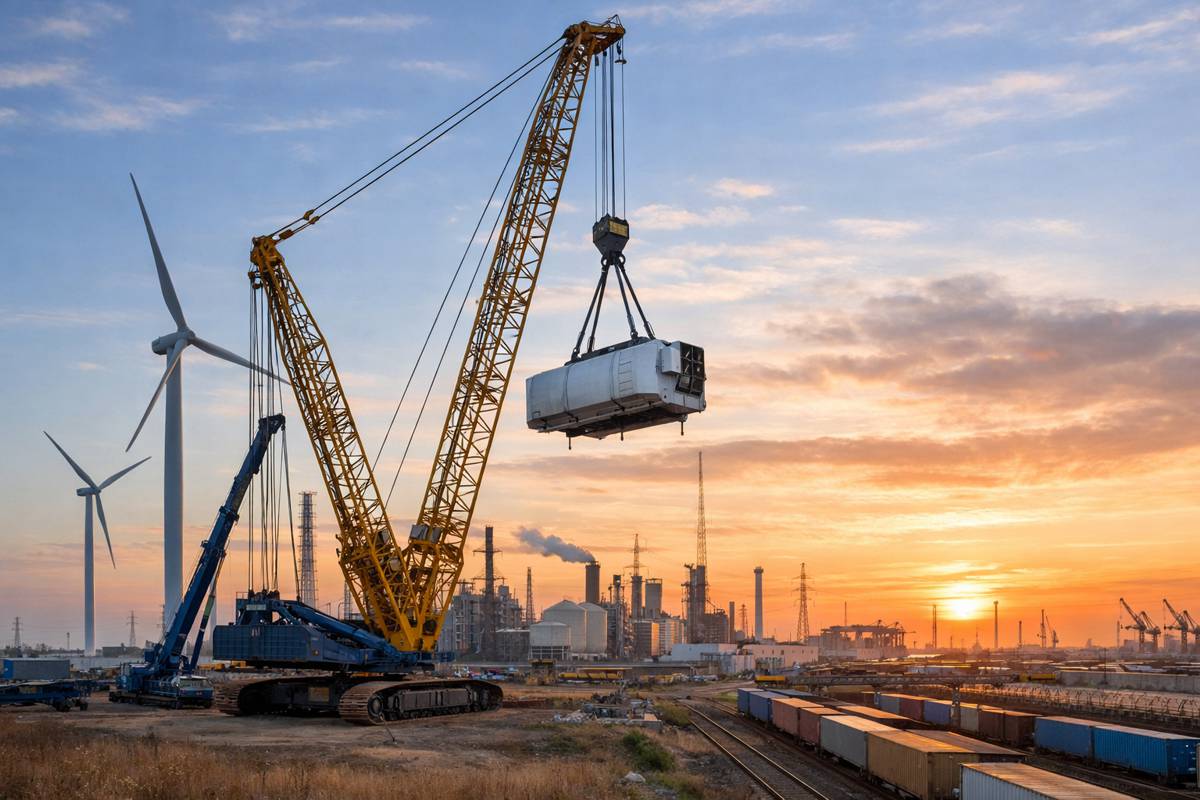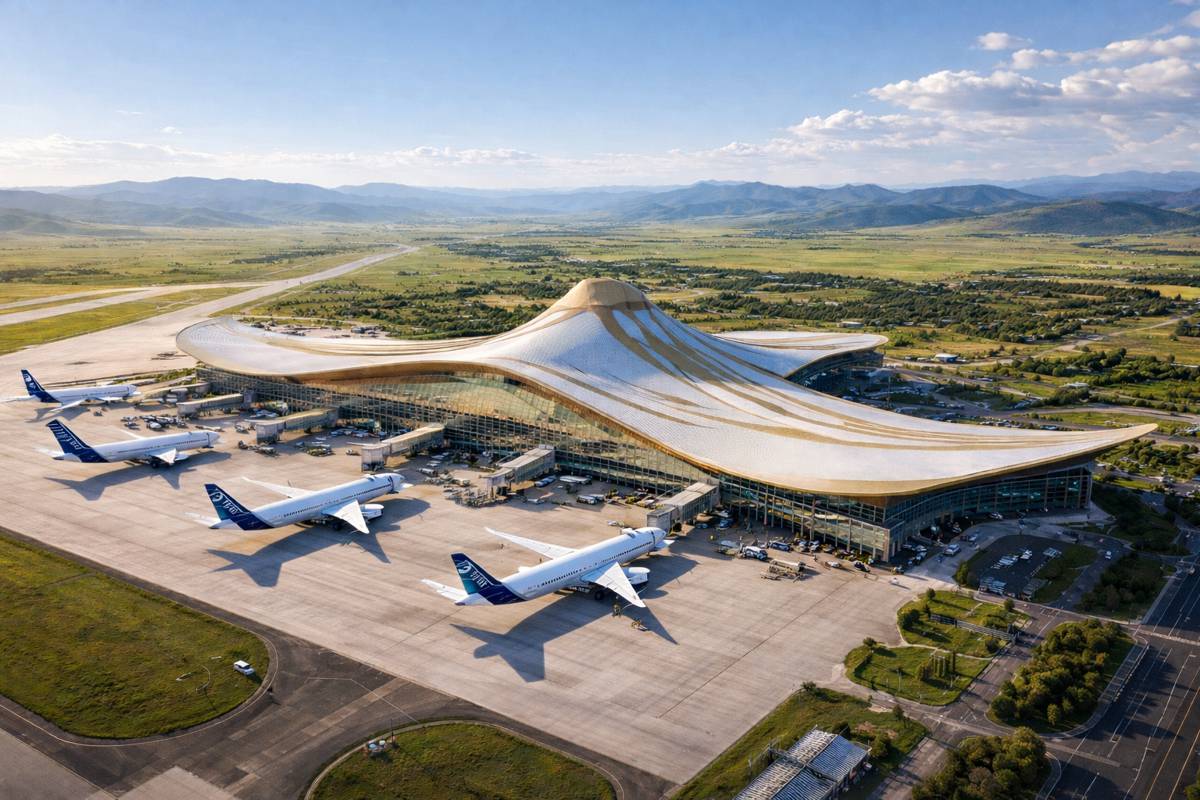Powering a Greener Future for Voltalia’s Solar Project in Uzbekistan
Amid growing global urgency to shift towards sustainable energy, the European Bank for Reconstruction and Development (EBRD) and the European Union (EU) have teamed up with Voltalia, a France-based renewable energy leader, to bring Uzbekistan’s green ambitions to life.
This partnership marks a significant milestone: Voltalia’s first renewable energy venture in Uzbekistan, specifically through a ground-breaking solar project in the sun-drenched Khorezm region.
With a financial backing of over US$54 million, this initiative aims not only to power thousands of homes but also to reduce carbon emissions dramatically, creating a blueprint for sustainable development across Central Asia. Let’s dig deeper into what makes this project so ground-breaking and how it’s set to reshape Uzbekistan’s energy landscape.
EBRD’s Financial Backing for Sarimay Solar
As Uzbekistan races toward ambitious sustainability goals, the EBRD has stepped in with a comprehensive financial package worth up to US$54.6 million (€50.5 million).
This funding, earmarked for the Sarimay Solar project, is expected to transform the energy landscape by enabling the construction of a 100 MWac (126 MWdc) greenfield solar plant. Sarimay Solar, a fully owned subsidiary of Voltalia, will head this ambitious venture, with the loan package designed to facilitate both the construction and operational phases.
The EBRD’s financial support is split into two main tranches:
- Senior Loan: Up to US$44.8 million (€41.5 million) to cover core construction and operational costs.
- Special Facility: An additional €9 million, dedicated to ensuring Sarimay Solar’s stability during the early stages of construction.
This robust financial backing underscores the EBRD’s dedication to propelling Uzbekistan’s green energy transition while supporting Voltalia’s commitment to renewable development across new markets.
Bolstering Climate-Positive Investment
Adding a crucial layer of security to this initiative, the EU has extended an unfunded guarantee, covering a senior loan tranche of US$7 million (€6.5 million) through the European Fund for Sustainable Development Plus (EFSD+). This guarantee isn’t just financial; it’s a testament to the EU’s unwavering commitment to climate mitigation projects, especially those grappling with complex regulatory and economic barriers outside Europe.
By leveraging the EFSD+, the EU aims to accelerate the deployment of underutilised climate technologies, helping countries like Uzbekistan transition from fossil fuels to renewable energy sources more effectively. This support is especially impactful for emerging economies, where green initiatives often face substantial hurdles due to lack of infrastructure or expertise in renewable energy management.
Solar Energy Ambitions in Uzbekistan
Uzbekistan’s goals are clear: transition from a carbon-heavy energy grid to a renewable-focused model by 2030. The country’s ambition is to develop up to 25 GW of solar and wind capacity within this timeframe, representing a monumental shift from its historical reliance on coal and gas. The Sarimay Solar project serves as a tangible step in this journey, aligning with the Uzbek government’s vision of a sustainable energy future.
By partnering with Voltalia, a seasoned European developer, Uzbekistan gains access not only to solar infrastructure but also to invaluable technical expertise. Voltalia’s track record in renewable projects across Europe and Africa provides a strong foundation for success in Central Asia, ensuring that the Sarimay Solar project benefits from best-in-class practices and a proven approach to renewable deployment.
A Transformative Impact on Energy and Emissions
Beyond its financial implications, the Sarimay Solar project will play a significant role in reducing Uzbekistan’s greenhouse gas emissions. Expected to generate up to 252 GWh of clean electricity annually, this solar plant will offset more than 141,000 tonnes of CO2 emissions every year. This aligns seamlessly with Uzbekistan’s overarching aim of decreasing its dependency on carbon-intensive energy sources.
The benefits extend beyond environmental impact, too. By adding a substantial amount of clean electricity to the national grid, Uzbekistan can diversify its energy sources, helping stabilise electricity prices and reduce vulnerability to global fossil fuel price fluctuations.
Why This Project Matters: Energy, Economy, and Employment
Aside from its environmental goals, the Sarimay Solar project is set to bring substantial socio-economic benefits to Uzbekistan. Job creation is a critical aspect, especially in Khorezm, where the plant is expected to spur employment opportunities across various phases of construction, operations, and maintenance.
Moreover, the influx of international investment from the EBRD and EU signals growing confidence in Uzbekistan’s market, potentially encouraging further foreign interest in the region’s renewable energy sector. With the Sarimay Solar project paving the way, Uzbekistan could soon become a magnet for sustainable investment, setting a strong example for neighbouring Central Asian nations.
EBRD’s Broader Investment in Uzbekistan
For the fourth consecutive year, Uzbekistan remains the leading recipient of EBRD funding in Central Asia. To date, the EBRD has invested approximately €4.9 billion in over 160 projects in the country, with a significant portion dedicated to supporting private entrepreneurship. This financial commitment underlines the bank’s belief in Uzbekistan’s potential as a regional economic leader, especially as it embraces sustainable practices in sectors ranging from agriculture to energy.
This sustained investment by the EBRD has already yielded notable results, fostering economic stability and encouraging a business-friendly environment. With the Sarimay Solar project, Uzbekistan continues to expand its renewable energy footprint, aligning with EBRD’s mission to promote sustainable and resilient economies in emerging regions.
The Future of Renewable Energy in Central Asia
The EBRD and EU’s support for the Sarimay Solar project could inspire similar initiatives across Central Asia, a region historically dominated by fossil fuels. Countries neighbouring Uzbekistan may take note, realising the viability of renewable energy in climates marked by high solar irradiance and available land.
As energy demand in Central Asia rises, and climate change poses increasing risks, renewable energy projects like Sarimay Solar offer a roadmap for other nations seeking sustainable alternatives. By leveraging international financing and collaboration, Central Asia could emerge as a renewable energy powerhouse, with Uzbekistan leading the charge.
A Positive Step Forward
The Sarimay Solar project exemplifies the power of international partnerships in driving sustainable development. Thanks to the collaborative efforts of the EBRD, EU, and Voltalia, Uzbekistan is taking bold steps toward a greener, more resilient energy future.
As the country seeks to balance economic growth with environmental responsibility, this project represents a beacon of progress, offering a scalable, impactful model for other emerging economies to follow.





















